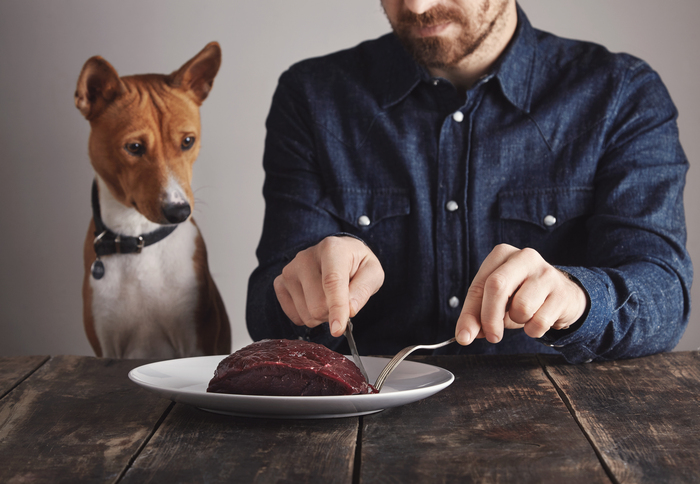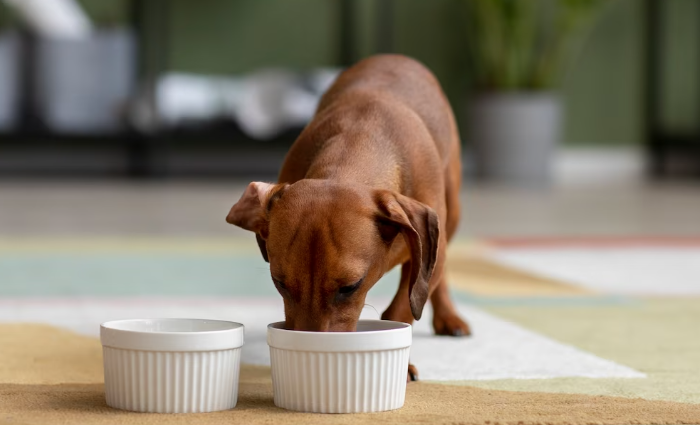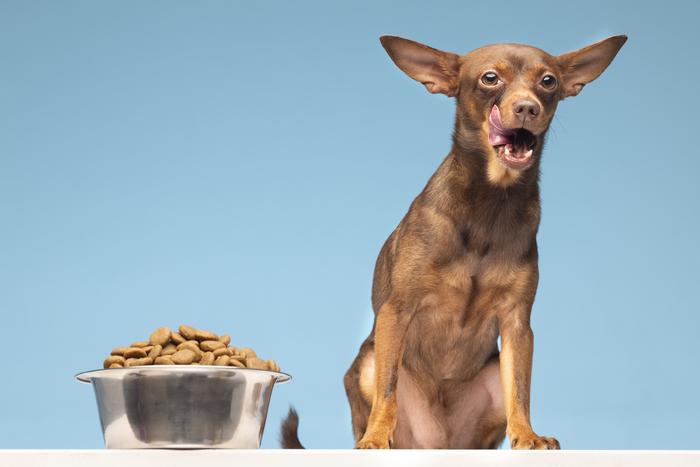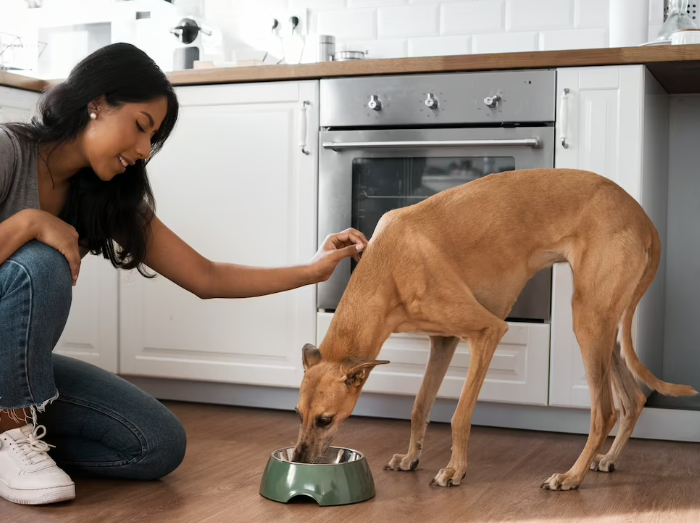2023-10-02
Sniffing around at home and while outdoors for a walk is a natural behavior in our beloved paw friends. Through their great sense of smell dogs explore their surroundings and learn about the world they are living in.
During the puppy stage of their lives, dogs are very prone to mouthing, chewing, nipping, pawing...etc. To investigate the items that surround them. As responsible and loving owners we should supervise our dogs and prevent them from swallowing objects that are inedible, toxic or otherwise dangerous for our canines. Some dogs manage to outgrow this behavior, while others keep their extra curious nature even in a mature age.
The desire to taste all types of objects, especially those we forbid them to, can cause stomach issues in our dogs. In many cases, these problems can easily be resolved with some medication or even by themselves within a day or two. They can be more problematic though and last longer, for dogs whose stomachs are more sensitive and intolerant to many types of food.
If you are an owner of a doggy who belongs to the “all-eaters” and has a sensitive stomach, the information listed below, might be very helpful to you.

The term “sensitive stomach” is related to digestive problems that can be different in intensity and type. In general, there are several symptoms that are considered most common in dogs with sensitive stomachs:
Medical treatment of these symptoms and their causes can be less effective in dogs with sensitive stomachs, compared to other dogs. That is why these issues can take longer to be handled and dog owners should be very careful of what their dogs eat when unsupervised.

We would like to note that sensitive stomach can be congenital, but there are also many factors that can cause it. Some of the most common causes for digestive issues and sensitive stomach are:
As you can see on the list above, there are many factors that can lead to digestive problems, which is why regular veterinarian exams are a necessity. You should not neglect to bring your paw friend for annual check-ups and get them vaccinated. Undergoing parasite control is also essential for the health of our beloved paw friends.

Common symptoms of gastrointestinal issues are:

We would recommend that you consult with your dog’s veterinarian and ask for advice on what type of food would be best for your dog depending on their age, breed and lifestyle.
As a general advice, you should opt for food that contains ingredients that meet all the quality and safety standards in your country. For example, if you are based in the US, the information listed on the website of the U.S. Food and Drug Administration might be very helpful; UK citizens may want to check the information on the website of the Food Standards Agency; Canadian citizens might want to take a look at the Canadian Food Inspection Agency.
You may want to opt for reputable food brands, although their prices might be a bit higher. You will at least make sure that all the ingredients are listed on the label and that you do not feed your paw friend food with an unknown origin. Some food brands contain many additives and supplements, often listed as “natural flavor”. There are foods on the market with somewhat unclear ingredients listed on the packaging, that you may want to avoid. All these hidden ingredients can cause upset stomach and lead to digestive issues.
Corny and starchy food fillers can cause diarrhea, intestinal blockage and lead to inability of the dog’s body to obtain the nutrients needed for proper development and growth. As you may know, food is of utmost important for the health of our beloved pets, especially during the puppy stage.
Simply put-the more natural, the better!
Having said that, we would like to remind you of the importance of fresh meat and vegetables. Dogs can be fed cooked chicken, turkey, white rice, sweet potato, spinach, broccoli, celery, carrots, green beans as healthy supplements to their regular food. Canned pumpkin, small pieces of fresh apples, bananas, blueberries can also be given.
You must avoid fruits with pits or at least make sure that you have removed them prior to feeding your dog. Grapes, as well as raisins, avocados, cherries as well as the green parts of tomatoes must be avoided.
Another tip is to not only feed your dog dry food but also include wet food and mix these. Wet food is higher in moisture, and it will help your dog stay hydrated.
Also, it will contribute to preventing them from developing urinary-tract issues. Once you put your paw dog on a healthy, balanced diet, that includes fresh food, you will notice improvement of their digestion. This means less stinky and more solid feces, increased appetite, more energy and reducing symptoms of digestive issues such as vomiting and diarrhea.

If you notice that your dog is having some of the symptoms listed above, you should closely monitor them during the day. It is important that you determine whether the problem is temporary and will resolve by itself within a few hours or a day, or the dog needs to undergo an examination by a veterinarian.
For example, your canine can vomit once-twice throughout the day, but other than that they may look intact. By “intact” we mean that your dog eats, drinks water and is energetic.
Even if there is any slight decrease in their physical activity, it does not take long.
You should always remember that hydration is of utmost importance for your paw friend to overcome this issue, so if they refuse to drink any water or eat any food high in moisture, you should not wait more than 24 hours to visit a veterinarian. If you see blood in the vomit or their stool, do not hesitate to contact a veterinarian. They will run the needed tests to identify the cause for the issue and will prescribe treatment.
The problem might have been caused by a disease, parasite, infection or just by food that your dog should not have eaten or is allergic to. If a disease is ruled out, the veterinarian is likely to prescribe a suitable diet for your paw friend that will help them stay healthy. As a general rule, all changes in a dog's diet should take place step by step.
Do not let your worries about your dog’s health make you drastically change their diet in one day. All the new ingredients should be gradually added to the food. In most cases, the 10%-rule is applicable, namely, that you should add 10% of new food to each serving until the serving consists of 100% new food.

You should remember that, besides keeping your paw friend on a healthy and balanced diet, regularly exercising them and providing them with interesting toys such as puzzles or treat-dispensing balls, will help them stay fit and not show unwanted behaviors out of boredom.
You may know, that dogs show many unwanted behaviors, including eating inedible items, when they feel bored, isolated or not taken care of. Try to bond with your canine as much as possible, and spend quality time with them. Lock any food at home, that can be potentially dangerous for them and supervise them while outdoors.
Do not let your paw friend be lazy and gain weight and keep track of their health by bringing them for regular examination.